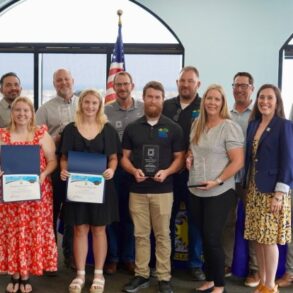
In a business climate obsessed with growth and quick wins, there’s a different path — one that values endurance over speed. The goal isn’t just chasing the next flashy valuation or quick exit but building a business that stands the test of time.
Since the internet revolution, the pursuit of rapid growth has overshadowed the creation of something truly lasting. I know this all too well.
I spent the first 10 years of my career hoping to build the next moonshot venture. I was chasing growth and ideas that could scale, raising money and hoping to build something big. But despite some successes, I felt dissatisfied, like I was running on a treadmill.
That all changed nine years ago when I started a small lifestyle business. It was a simple business — tangible, profitable, and one that got better each year. There were no hairy, audacious goals. It was about passion for the work itself. The camaraderie within my team, a shared sense of purpose and a deep connection with the community we served brought a level of fulfillment I hadn’t experienced before. This experience transformed my perspective on what it means to build a successful business.
Consider the stories of Kongō Gumi, Beretta, Radio Flyer and Fiat. These are companies that have not only survived but thrived for centuries. These aren’t the flashy tech giants that dominate headlines with billion-dollar valuations and IPOs. These are the businesses that quietly endure, year after year, generation after generation. They have a different playbook, one that prioritizes sustainability over speed and depth over breadth.
My team and I study these enduring businesses carefully, and we’ve found something interesting: the rules of the game change when your goal is to create a business that endures. You’re not striving to build the next unicorn; you’re crafting a business with a solid foundation, one that weathers economic storms and market shifts with grace.
So, how do you build a business that lasts? Let’s explore the practices that underpin some of the world’s longest-lasting companies.
Learning from the businesses that last
If we want to understand what it takes to build a business that lasts, we should start by examining the companies that have thrived for centuries. These businesses exemplify the principles of longevity and resilience that have kept them standing through generations. Here are a few standout examples:
- Kongō Gumi (1,446 years) – The oldest construction company in the world, Kongō Gumi has specialized in constructing and restoring Buddhist temples since 578 A.D.
- Nishiyama Onsen Keiunkan (1,319 years) – The world’s oldest hotel, founded in 705 A.D., blends traditional hospitality with modern amenities to ensure its longevity.
- Staffelter Hof (1,162 years) – One of the world’s oldest wineries, Staffelter Hof (est. 862 A.D.) balances traditional winemaking with modern innovations.
- Beretta (498 years) – Established in 1526, Beretta is one of the oldest active firearm manufacturers.
- Lloyd’s of London (335 years) – Founded in 1689, this insurance market thrives due to its unique syndicate system, balancing tradition with innovative risk management.
- Zildjian (401 years) – Established in 1623, Zildjian is a leading cymbal manufacturer.
- Fiat (125 years) – Founded in 1899, Fiat’s longevity is due to constant innovation and a strong commitment to quality and brand heritage.
- Radio Flyer (107 years) – Established in 1917, Radio Flyer is known for its iconic red wagons.
None of these companies have been on the front page of TechCrunch, but each of them has thrived for centuries due to their ability to innovate, adapt and stay true to core values.
Robert Pasin, the CEO of Radio Flyer, vividly remembers the turning point when his grandfather, Antonio Pasin, saw the potential in a simple red wagon and shifted the entire focus of the family business from furniture to the creation of an American icon. From this humble beginning, Radio Flyer became an iconic brand.
But Radio Flyer’s journey wasn’t always smooth. In Robert’s first year as CEO, the company faced an existential threat — competitors introduced plastic wagons. For a company built on wood and steel, this was a seismic shift that presented a fork in the road. Robert had to decide which traditions to keep and which to leave behind. Do they introduce a cheaper product to keep up with the competition? They did not. Radio Flyer recently celebrated its 100th anniversary and even showcased the world’s largest wagon on Michigan Avenue in Chicago. Where might the company be if they responded to that trend, lowered their quality and removed their classic product?
The secrets behind centuries of success
- Commitment to core values and quality. Whether it’s Zildjian’s secret alloy formula or Beretta’s craftsmanship, these companies preserve what makes them unique, building deep trust and loyalty among customers and employees.
- Balance of tradition and innovation. While respecting their heritage, these companies avoid being stuck in the past. Lloyd’s of London continues to innovate in risk management, and Zildjian blends modern production techniques with traditional craftsmanship. This balance allows them to stay relevant and competitive in an ever-changing market.
- Strong relationships and community engagement. Maintaining strong relationships with customers, employees and communities is essential. Companies like Lloyd’s of London and Radio Flyer invest heavily in these relationships, fostering a loyal customer base and creating a supportive environment that helps them weather tough times. Active community involvement further enhances their reputation and stability.
- Financial prudence and aligned ownership. These companies manage their finances with a focus on sustainable growth, ensuring they partner with long-sighted investors and owners who share their vision. Avoiding the pressures of short-term private equity allows them to stay true to their core values and long-term goals, providing stability and the freedom to invest in future opportunities without compromising their mission.
- Adaptability and employee investment. Adaptability is crucial for enduring success. Companies like Beretta and Zildjian have shown remarkable flexibility in evolving their business models and products to meet new challenges. They also invest in their employees, fostering a motivated and loyal team that drives the company forward. With leadership and ownership aligned on long-term goals, these businesses ensure their legacy endures.
Lessons from small giants
In a business world where bigger is often seen as better, the book “Small Giants: Companies That Choose to Be Great Instead of Big” by Bo Burlingham challenges the notion that scale should be the ultimate goal. Burlingham proposes something far more important than sheer size — he believes success is about creating companies that prioritize excellence, culture and community over endless expansion.
Burlingham highlights businesses that have consciously chosen to stay small to focus on what truly matters: quality, purpose and the well-being of their employees and customers. These companies, despite their modest size, have achieved greatness by redefining success on their own terms.
“Building a business that lasts isn’t about chasing the next big thing; it’s about playing the long game with a relentless commitment to long-term value.”
— Chase Murdock
Of the 14 companies profiled in “Small Giants,” one is Utah’s own O.C. Tanner. Founded in 1927, O.C. Tanner has built a strong reputation by focusing on employee recognition and company culture rather than chasing rapid growth. They’ve chosen to remain private, which allows them to stay true to their values and maintain a long-term perspective. By investing deeply in their employees and the community, O.C. Tanner has created a loyal customer base and a lasting legacy.
Much like these century-old companies, the “Small Giants” profiled by Burlingham have chosen a path of enduring greatness over fleeting glory. These companies prioritize their mission and values over short-term profits, ensuring that their decisions align with their core principles. They focus on perfecting their products and services, fostering customer loyalty and a strong reputation. They invest heavily in their employees and communities, creating a supportive and loyal environment that leads to high retention and strong community ties.
How to build durability
Building durability means redefining a company’s North Star. Shifting to a long-term mindset impacts every aspect of the business: how and whether you raise capital, the incentives of those running the company, the pace you run at, the size of the bets you make, and who you appoint to run the company.
In my team’s journey of exploring and nurturing businesses that are built to last, we’ve uncovered some key insights that are essential for building durable enterprises:
- Financial management. This is more than just driving revenue or optimizing the P&L. It’s about managing to the full balance sheet and broadening perspective to ensure long-term sustainability rather than quarterly earnings.
- Identifying and measuring the right metrics. What you measure is what you manage — a principle that drives long-term success. Focusing solely on short-term metrics like quarterly revenue or profit margins can lead to myopic decisions. Instead, it’s crucial to prioritize metrics that reflect the enduring health of the business, such as customer loyalty, employee satisfaction and brand equity.
- Community involvement. Businesses that actively engage with their communities tend to create a loyal customer base and a supportive environment. Whether it’s participating in local events, supporting community initiatives or simply building strong relationships with local stakeholders, these activities can significantly enhance a company’s reputation and stability.
- Investing in people. Training and mentorship might seem like slow and costly processes in the short term, but they pay off massively in the long run. Well-trained, motivated employees are not only more productive but also more loyal. They are the ones who drive the company forward through thick and thin.
- Recruiting the right people. It’s tempting to hire talent looking for quick wins and high-profile projects, but we’ve found that those who value stability, growth and a shared mission contribute most to long-term success. These individuals grow within their roles and become integral parts of the company’s enduring legacy.
Building a business that lasts isn’t about chasing the next big thing; it’s about playing the long game with a relentless commitment to long-term value. Focus on the fundamentals — your balance sheet, the right metrics, your people and your community. That’s how you build something that thrives for generations.
This post was originally published on this site be sure to check out more of their content








